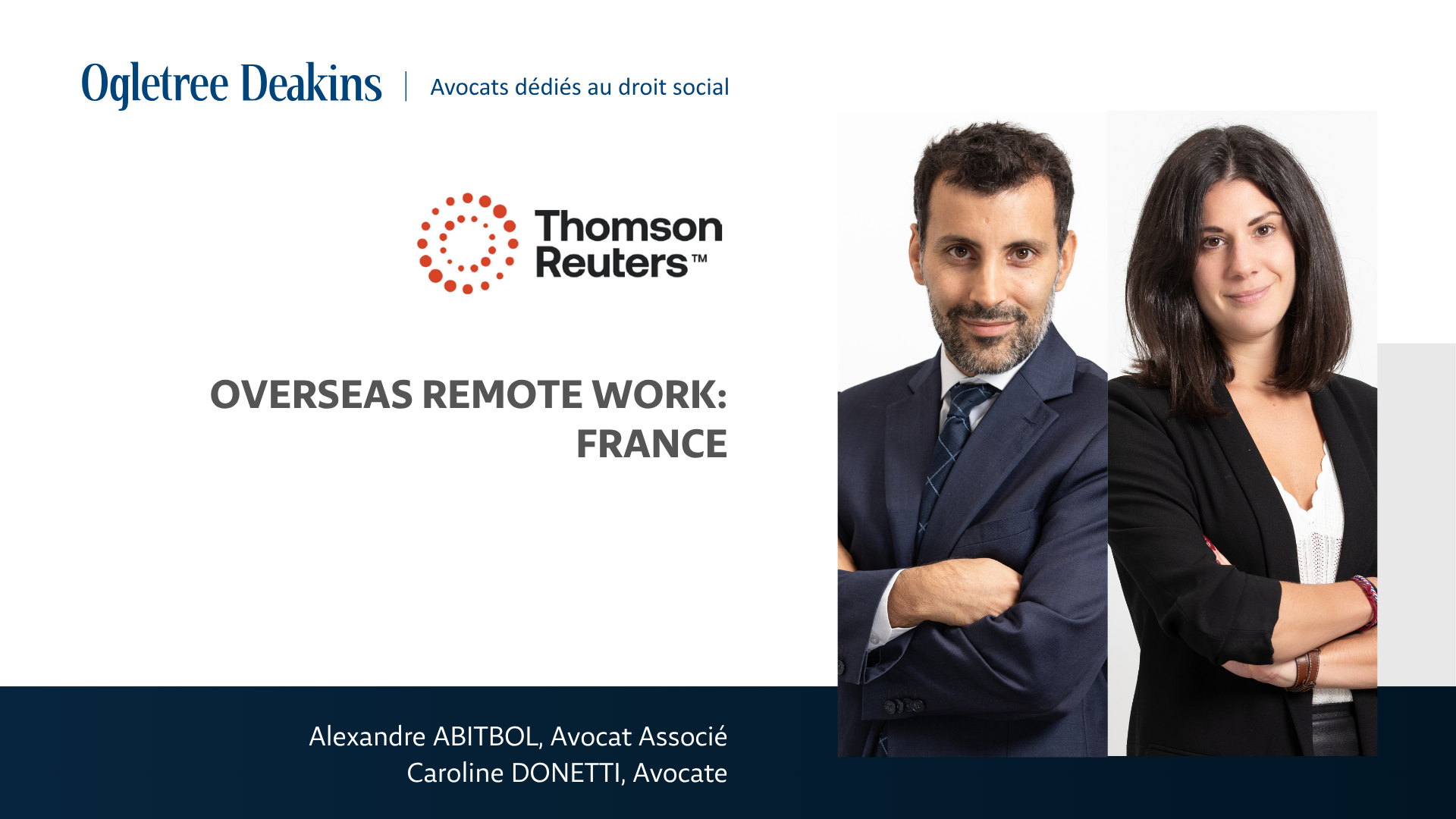EXTRAIT DE LA NOTE PRATIQUE EN ANGLAIS (8 PAGES)
A Practice Note addressing legal and practical considerations in France regarding overseas remote employment outside of the country or state, of the employer’s central workplace, where the employee is employed. It addresses issues and considerations both when an employee based and employed in France seeks to work remotely overseas outside of France, and when an employee based and employed outside of France seeks to work remotely overseas in France.
In an overseas remote work scenario, an employer must review home country and host country considerations for the two relevant territories. This includes employment law issues, regulations, and
compliance in areas such as tax and immigration, and practical steps for employers to implement a remote working arrangement properly and successfully. This Note considers legal and practical issues under the laws of France only, when either:
- The employee is normally employed and based in France, and it is proposed the employee will work remotely outside of France (Home Country).
- The employee is normally employed and based outside of France, and it is proposed the employee will work remotely in France (Host Country).
The material in this Note assumes the employee remains employed by the employer in the Home Country and is not transferred to employment under an entity in the Host Country.
Remote work considerations that are not specific to an overseas scenario must also be reviewed by the employer. See Employee Mobility Toolkit (International) for a list of global remote work
resources available in Practical Law.
Posted Worker
It is important, where possible, to distinguish between an employee working remotely overseas and a posted worker.
In an overseas remote work arrangement, an employee:
- Remains employed by their employer in the Home Country.
- Works temporarily overseas from their personal workplace or location.
- Is not sent or posted to an entity established in the overseas territory.
Under the EU Posted Workers Directive (96/71/EC (as amended)) (PWD), an employee is a posted worker when they:
- Are employed by an entity in a member state.
- Remain employed by that entity.
- Are posted to an entity or establishment in another member state for a temporary period under a contract between the two entities.
Broadly, this means the PWD applies to a crossborder secondment to a group company in the Host Country or an employee sent to work on a contract for a client in the Host Country. The PWD does not
apply if an employee is merely carrying out their duties remotely in France for a foreign employer, and there is no receiving entity in France.
*Pour lire l’article complet sur le site de Thomson Reuters cliquez ici.





